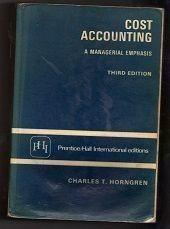Lisa has just completed her Diploma in Bakery and Confectionery at a local TAFE. Since then she has been working at a local bakery chain
Lisa has just completed her Diploma in Bakery and Confectionery at a local TAFE. Since then she has been working at a local bakery chain as a trainee pastry chef. Lisa has now completed the apprenticeship and is looking to make a new start on her own. She has recently secured a lease of house in a hillside suburb of Cairns. She was attracted to the house as it featured a small commercial kitchen containing a woodfired oven & shopfront area. As the house is zoned semicommercial, Lisa has found that she can obtain a license to bake 380 loaves per day. The shopfront is just large enough to display 15 loaf shelves shelf. The remaining loaves are kept in cooling shelves within the baking area. Lisa has learned at TAFE and came to know about an Ancient Grains Recipe. This recipe was used by the royal cook in Ancient Egypt to bake delicious bread only from flour. Also, during her time as a trainee pastry chef she has gained in-depth knowledge about flour. Because the ancient recipe only produces bread with flour as its only ingredient, it is very healthy and additive free. Lisa has read from a reliable market research report and that demand for healthy, additive free pastry is very promising. She would like to capitalize her special knowledge and brand it for this niche market. She plans to create three types of specialty breads, Sourdough, Kamut, and Rye. Table below is her estimate sale price, cost and demand of each bread type.

She likes to explore on the profitability and percentage of return of this opportunity as the option of working for herself is very appealing. Besides the variable cost, there is a fixed cost of $150 per day (e.g., electricity and water, wages, and rental payment) and a 28% tax rate. In addition to profitability, she is aware of other opportunities and threats.
QUESTION:
(a) Propose a model world for Lisa so she could better understand her business. State the purpose of your model and its assumptions.
(b) Construct a black box model (the model) for your model world. Clearly identify your variables and performance measures.
(c) What if Lisas fixed estimation of demand was incorrect and Lisa think a demand model bases on sales and price will be more accurate. Will this change (i) the model world and (ii) the black box model? Why or why not.
(d) Recently, Cyclone Debbie made a land fall in Queensland regions and caused destructive damage and flood. The affected regions are where her suppliers located. After the cyclone, Lisa noted significant price variability in the cost of flour. She is concerned about these fluctuations and wants to see how much a 25% rise in the price of flour hurts profitability. She considers a 30% return (Net profit after tax / revenue) appropriate for the risk involved. Will this additional requirements change (i) the model world and (ii) the black box model? Why or why not.
Bread Type Kamut Sourdough $4.50 Rye $4.5 Estimated sale price $4.0 Variable costs: Flour $0.95 $0.85 $0.95 Other costs $0.30 $0.30 $0.65 Labour $1.00 $0.25 $0.50 100 100 50 Minimum quantity Maximum quantity 300 300 150 Bread Type Kamut Sourdough $4.50 Rye $4.5 Estimated sale price $4.0 Variable costs: Flour $0.95 $0.85 $0.95 Other costs $0.30 $0.30 $0.65 Labour $1.00 $0.25 $0.50 100 100 50 Minimum quantity Maximum quantity 300 300 150Step by Step Solution
There are 3 Steps involved in it
Step: 1

See step-by-step solutions with expert insights and AI powered tools for academic success
Step: 2

Step: 3

Ace Your Homework with AI
Get the answers you need in no time with our AI-driven, step-by-step assistance
Get Started


